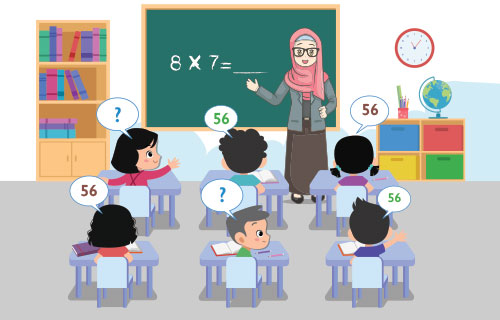New IDEAS policy brief identifies several gaps in programmes for special educational needs students

Kuala Lumpur, 10 September 2021 – A new policy brief by the Institute for Democracy and Economic Affairs (IDEAS), entitled ‘Falling Through the Cracks: Identifying Children with Learning Difficulties in Malaysian Schools’, identified shortcomings in the several remedial and learning support programmes currently in place for students with special educational needs (SEN), including issues of limited curriculums, lack of consistency in implementation, as well as lack of clear criteria and timeline for hospital referrals.
IDEAS noted that Malaysia had committed to ensuring all children have access to education and that children’s right to education is met. As such, the country actively strives to educate all children, including children with special needs.
However, while there has been growth in services for SEN students within the Ministry of Education, the current services and school placement options available are mainly catered for students with moderate to complex needs in special education classes or whose difficulties are more apparent and identifiable.
However, there exists a group of children whose difficulties are so subtle that they often go unnoticed and are usually identified at a later age as their difficulties become more pronounced with increasing academic demands.
As observed by the author of the policy brief, Sharmini Xavier, “Whilst there are some successes in improving literacy and numeracy for children with learning difficulties through existing programmes, gaps in the process of identification, assessment and referral to support services need to be addressed to prevent children from falling through the cracks.”
The policy brief reviewed several remedial and learning support programmes that have been designed and implemented in past years in primary schools nationwide, and highlights some of the shortcomings of these programmes including placing a heavier focus on literacy and numeracy skills with limited attention given to other developmental domains such as cognition, language & communication. The report pointed to a lack of consistency in implementation with insufficient guidelines, as well as a lack of clear criteria and timeline for referrals to the hospital.
Based on the findings, IDEAS made the following recommendations to better address the educational needs of SEN children:
- Address issues of competency and skills through training programmes and consider providing learning support specialists in mainstream schools.
- Greater collaboration between the Ministry of Education and the Ministry of Health.
- Expand allied health training programmes and provide allied health support in mainstream schools.
IDEAS CEO Tricia Yeoh commented, “Children with special educational needs must be given the attention they currently lack within the education system. Our IDEAS Autism Centre targeting children from B40 families, managed by IDEAS’ sister organisation that runs community projects, has been a ground-level project which has taught us that dedicated care and support must be provided to children with learning disabilities. We hope that with this new policy brief, the Ministry of Education and Ministry of Health can collaborate to take on these policy opportunities in schools throughout the country.”
— END —
Download Media Statement PDF File Here
For enquiries, please contact:
Zokhri Idris, Ph.D, Director, External Relations
T: +603 2070 8881/8882 | E: zokhri@ideas.org.my

